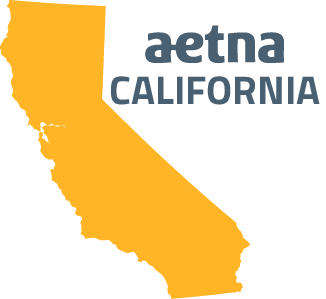 Recovering from substance abuse or a mental health disorder in California often requires professional treatment in a rehabilitation program. Depending on personal goals and concerns, working with an insurance provider allows individuals to focus on long-term goals and start addressing the underlying cause of their behaviors. Aetna policies in California allow individuals to seek treatment in an appropriate program based on their goals and the complications that contribute to an addiction.
Recovering from substance abuse or a mental health disorder in California often requires professional treatment in a rehabilitation program. Depending on personal goals and concerns, working with an insurance provider allows individuals to focus on long-term goals and start addressing the underlying cause of their behaviors. Aetna policies in California allow individuals to seek treatment in an appropriate program based on their goals and the complications that contribute to an addiction.
Employer-Provided Coverage Options
Aetna offers coverage for substance abuse and addiction through employer-provided policies and group plans. The policies provided by an employer depend on the needs of the company and the group, so the exact options vary significantly.
In California, the policies offer rehabilitation coverage based on the group and the business rather than the needs of the individual. Most employers offer basic and standard policy options, so Aetna covers most mental health conditions and addictions. For example, it will pay for a percentage of the treatment costs when entering an in-patient program, but will set limits on the exact coverage amount based on the needs of the group. If the policy selected by an employer covers 80 percent of treatment costs, then the individual must pay for 20 percent of the costs after paying the stated deductible.
Group and employer-provided policies usually offer flexibility when selecting a treatment program. In most cases, it covers treatment and allows individuals to focus on personal goals. Keep in mind that out-of-network programs usually cost more due to the lower coverage for rehab services and treatments in out-of-network plans.
Treatment Facilities and Programs
California offers a variety of treatment options that range from simple out-patient counseling programs to long-term in-patient programs in a luxury facility. Due to the wide array of options, individuals need to understand their specific needs and the details in their policy before selecting an appropriate program and facility for long-term goals.
As a general rule, a rehabilitation program offers outpatient and inpatient treatment. Outpatient treatment works well when individuals have never sought treatment in the past and have specific obligations that limit their time. For example, if an individual does not have enough time to seek treatment in a residential program due to a career, then he or she benefits from outpatient treatment.
Inpatient, or residential, treatment programs remove an individual from their normal lifestyle and limits their options for recovery. Generally, the program requires 28 to 90 days, but most rehab programs last for one month. When working with an insurance provider, expect limitations on the duration of in-patient treatment. Generally, an Aetna policy allows individuals to seek treatment for 30 to 35 days in a residential program. Detoxification services may or may not be included as part of the rehab program.
When comparing treatment programs, consider the types of treatments the facility offers. Holistic plans address the entire situation by evaluating the specific needs of the individual. It creates a personalized plan of action and uses a combination of traditional treatments with alternative and medical solutions. An evidence-based approach to recovery focuses on treatments with scientific evidence that shows effectiveness on a long-term basis. For example, cognitive-behavioral therapy, and counseling services are considered evidence-based treatments.
Limits in Personal Coverage
Aetna insurance plans through an employer or a group policy allow individuals to seek treatment for mental health disorders and addiction, but it does set limits on recovery at a personal level. Generally, the policies address the needs of the group as a whole, so the options might have limitations when it relates to the coverage. Expect that the policy will not pay for experimental or alternative therapies. It will usually cover evidence-based treatments and traditional treatments in a rehab facility.
Limits also apply to the network and the duration of treatment. Some policies do not pay for out-of-network treatments or set limitations on the out-of-network treatment costs. Furthermore, the policy usually sets a limit on the number of sessions or the duration of the entire treatment program, such as 30 days for residential care or 12 sessions for out-patient treatment.
Selecting a Facility for Recovery
 After identifying appropriate treatment programs, compare the options and the costs associated with recovery. Contact us at DrugRehab.org to evaluate and compare your options before finalizing a rehab facility.
After identifying appropriate treatment programs, compare the options and the costs associated with recovery. Contact us at DrugRehab.org to evaluate and compare your options before finalizing a rehab facility.
